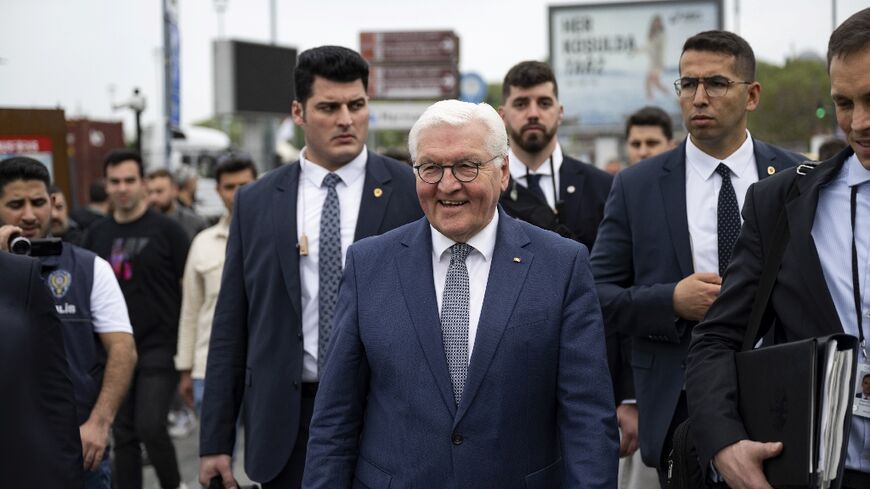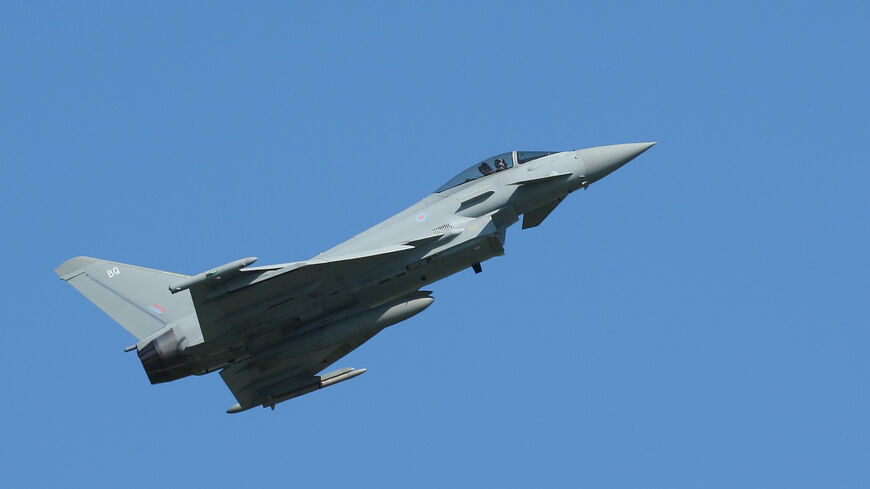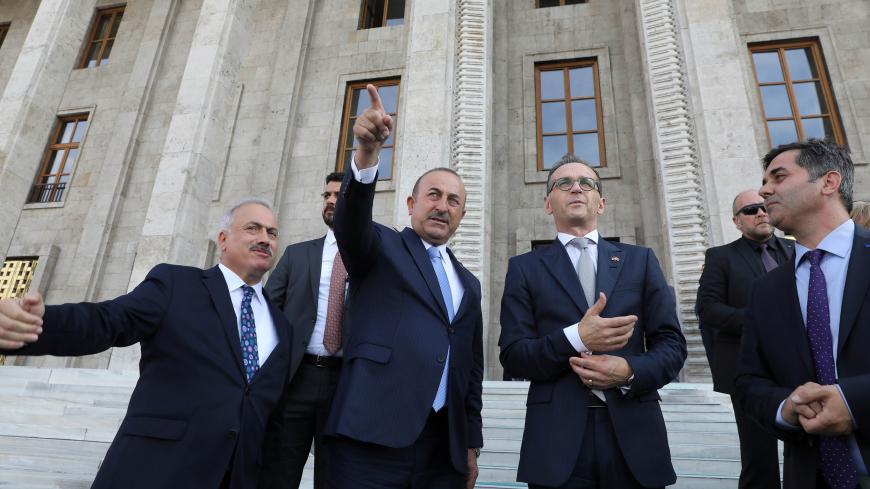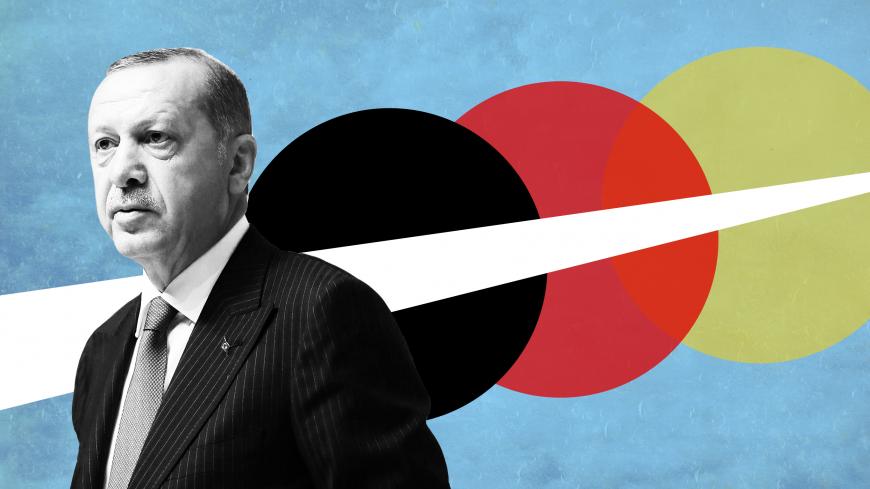Erdogan and Germany's Steinmeier chuckle over doner kebab as ties grow
The German president’s visit, marking the centennial of diplomatic ties between Turkey and Germany, came during a challenging time for Ankara-Berlin relations, given the wide gap over the Israel-Hamas war.
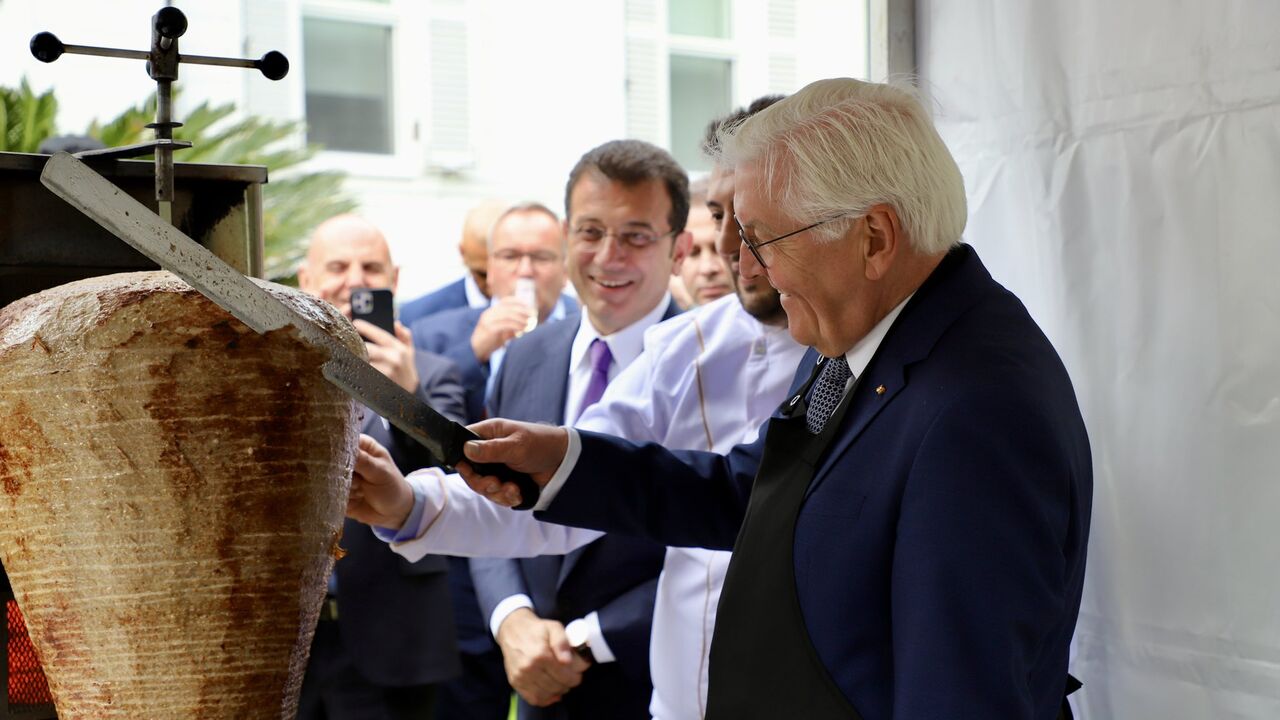
ANKARA — Turkish President Recep Tayyip Erdogan and German President Frank-Walter Steinmeier shared laughs on Wednesday, lightening up the atmosphere amid the tensions that have characterized the two countries’ ties since the Israel-Hamas war began.
The two leaders briefly laughed when Erdogan jokingly asked whether there were any leftovers of the doner kebab that Steinmeier sliced in Istanbul as a symbol of the ties between German and Turkish cultures.
"I guess all of the doner kebab was consumed in Istanbul," Erdogan told Steinmeier, who tried to show off his skills earlier in the week when he practiced cutting the signature Turkish dish. Steinmeier arrived in Istanbul on Monday accompanied by a Berlin chef of Turkish origin, Arif Keles, and 60 kilos of kebab meat as a symbol of diversity and cultural ties between the two countries.
🔴Erdoğan'dan Almanya Cumhurbaşkanı Steinmeier'a:
— dokuz8haber (@dokuz8haber) April 24, 2024
➡️Herhalde döner İstanbul'da bitirildi pic.twitter.com/fNhpvscYgv
Steinmeier met with Erdogan on Tuesday in Ankara at the end of his three-day visit, which also included stops in Istanbul and Turkey’s southeastern province of Gaziantep. The area was one of those hit by last year’s devastating earthquakes.
The visit, in commemoration of the centennial of diplomatic ties between Turkey and Germany, came during what the German leader described as "very challenging times" for Ankara-Berlin relations, given the wide gap between the two countries’ positions on the Israel-Hamas war.
Speaking during a joint press briefing after their talks, Erdogan reiterated his criticism of Israel for its actions in Gaza, but he refrained from harshly criticizing Berlin for its support of Israel, which he had previously described as payment for a “psychological debt” during his visit to Berlin in November.
Erdogan accused Israeli Prime Minister Benjamin Netanyahu of “endangering the security of our entire region, including his own citizens, just to extend his political life.”
“Unfortunately, there is a grave humanitarian situation there. Our German friends need to recognize this,” he added.
Steinmeier also struck a restrained tone, highlighting common points between the two capitals on the war. “Israel’s security cannot be achieved without a proper political perspective for Palestinians,” he said, speaking through a translator. “And this political perspective can only be a two-state solution.”
Germany is an outspoken defender of Israel’s right to self-defense and launched a heavy crackdown on pro-Hamas groups in the country after war broke out. Turkey, meanwhile, does not consider Hamas a terrorist organization, and Erdogan frequently accuses Israel of committing genocide in Gaza, likening Netanyahu to Hitler.
Turkey’s top ask: defense sales
On bilateral ties, Erdogan reiterated his country’s primary request from Berlin: the removal of sales restrictions on the Turkish defense industry.
“We want the complete removal of restrictions on the defense industry from our relations,” Erdogan said. “We hope that Turkey and Germany will focus on discussing joint production projects from now on, rather than encountering obstacles, particularly in the field of defense.”
Ankara accuses Berlin of imposing de facto defense embargoes on Turkey due to its operations against the Syrian Democratic Forces. Turkey considers the US-led international coalition, its top ally in the fight against the Islamic State, a threat to its national security.
Germany is one of Turkey's top trading partners, with a trade volume exceeding $50 billion last year, according to official data.
Turkey is also seeking Germany's green light to purchase 40 Eurofighter Typhoons from a European consortium that manufactures the fighter jets.
Steinmeier stressed the “importance of freedom of press and the rule of law” for progress in relations between Turkey and the European Union.
Kebab controversy
Steinmeier’s visit to Turkey was laden with meaning and nods to his country’s status as the home of the largest Turkish diaspora in the world.
🇩🇪 🇹🇷 German president Steinmeier flies to meet Erdogan in Istanbul and brings Doner Kebab meat with him from Berlin.
— Daily News Dispatch (@DailyDispatchIn) April 24, 2024
He says, it is a symbol of German and Turkish integration and friendship. pic.twitter.com/L7UDNYgLa3
His visit kicked off at Istanbul’s Sirkeci railway station, where the first wave of Turkish workers embarked for Germany in the 1960s. Germany is home to more than 3 million Turks who immigrated to the country as “guest workers,” or “Gastarbeiter” in German.
Steinmeier’s delegation included families of guest workers, prominent Turkish-German businessmen and politicians.
The German leader's videos of slicing meat from Keles' doner kebab skewer alongside Istanbul Mayor Ekrem Imamoglu sparked charges of Orientalism on both German and Turkish social media. Doner kebab shops owned by Turks are quite common in Germany.
Turkish-Germans discovered the 1st COVID vaccine in the world; some were movie directors who won awards on behalf of Germany, numerous writers, musicians, intellectuals from Turkey call Germany home.
Of all these, the 🇩🇪 president chose the kebab maker to accompany him to 🇹🇷 https://t.co/ZVMHyi48P0— Evren Celik Wiltse (@EvrenWiltse) April 22, 2024
Speaking alongside Erdogan on Wednesday, Steinmeier hit back at the criticism, saying that the large delegation accompanying him reflected the "diversity" of Turkish-German society in Germany. "And the doner of Arif Keles is a part of this diversity," he added.
Despite the controversy, doner was also served during the banquet Erdogan hosted for Steinmeier, the Turkish press reported.



